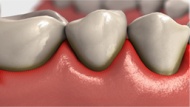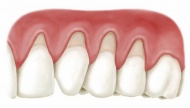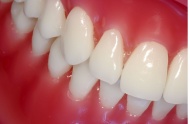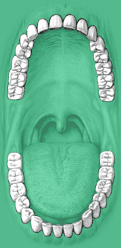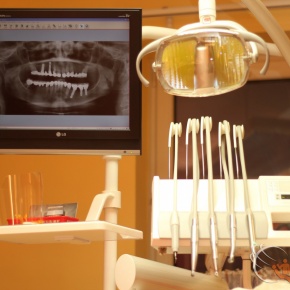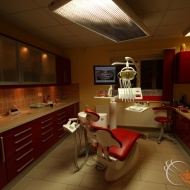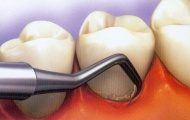
Periodontal disease is an infection of the gum and the tissues that support our teeth. If left untreated, it can cause progressive bone loss around the teeth, looseness and tooth loss. This oral inflammatory disease has many variations in occurrence and seriousness depending on: Oral hygiene, age, gender, general health and genetical background.
Gum disease can be present in the mouth independently from dental caries. When patients complain that a totally healthy tooth has fallen out or needed to be extracted, it is because the tissues that would support that tooth are damaged beyond repair.
There is a lot of confusion among patients concerning periodontal diseases. Here you find answers to the most frequently asked questions:
Periodontal disease affects more than 90% of Hungary’s population to some degree. It is caused by bacteria present in the mouth, but the condition is not infectious.
It can be cured (like gum inflammation) and treated (like gum decay) to stop the condition from getting worse. If left untreated, it can cause serious health problems like heart and cardiological diseases or even premature delivery. The success of the periodontal treatment depends largely on the co-operation between patient, who are expected to pay particular attention to oral hygiene, and dentist, who will use his specialist knowledge and experience in this field. Tendency to develop periodontal disease can be inherited, but its development depends on the patient’s own lifestyle and oral health.
The disease can affect children as well. If you suffer from the fully developed disease, regular dental treatments can reverse the condition or can at least keep you symptom-free for several years. In more serious cases, dental surgery will be the only solution to treat the illness.
The second most common cause of the tooth loss after the tooth decay is the formation of the periodontal disease. In most cases the periodontal disease occurs as a chronic inflammation, whose main cause is the accumulating pellicle and dental calculus on the teeth. With the growth of the dental calculus will be more, difficult cleanable surface in the mouth. As a consequence between the teeth and the gum the number of the bacteria will increase in the formulating pockets due to the inflammation. With this the inflammation is strengthening and the process strengthen itself with the increasingly more difficult cleanable surfaces and pockets, until around the teeth do not destroy completely the tooth’s supporting structure, including the surrounding bone. Then the tooth slowly starts to move and fall out.
On the picture below you can see that deep pockets were formed due to the regularly not removed tooth calculus. The gum separates from the root, the gum recedes, and the bone is decomposition. When treating the pockets it is not enough to remove the dental calculus from the teeth surface. In this case it is necessary to curetting under local anesthesia after registering the pockets. So the periodontal diseases can be stopped and symptom-free status can be achieved.
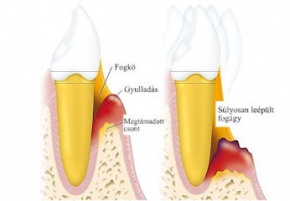
Risk factors
The bad oral hygiene, the smoking, the diabetes, and some genetic factors greatly increase the risk of the formulation of the periodontal diseases. The periodontal disease has mainly genetic formed type, but the accumulated dental calculus exacerbates it.
Treatment
Above can be seen the importance of maintaining the good oral hygiene. This includes the regular dental calculus removal at the dentist. If the pockets have already formed, from these the inflamed tissues must be removed with special tools (closed curettage), or if the pockets are very deep (more than 5-6 mm) the surgical cleaning (open curettage) is also considered.
These changes may be form not only around the teeth, but around implanted artificial roots in neglected cases. The therapy is similar, there shouldn’t use special materials made tools for cleaning to don’t hurt the surface of the implants.
We often splint wiring the mobile teeth in order to increase their stability. The mentioned methods are only aimed at stopping the process. The lost connection between the tooth and the bone they can’t be restored. For this much more expensive membranes guided tissues regeneration survey is necessary, combined with bone replacement materials. These unfortunately can be applied always; furthermore if we can’t change the oral hygiene habits, or the patient doesn’t give up the smoking, their use is almost useless.
The surgical attend of the gingival retractions (recessions) are the specialists’ task. Their size and location greatly influenced the success of the surgery.

